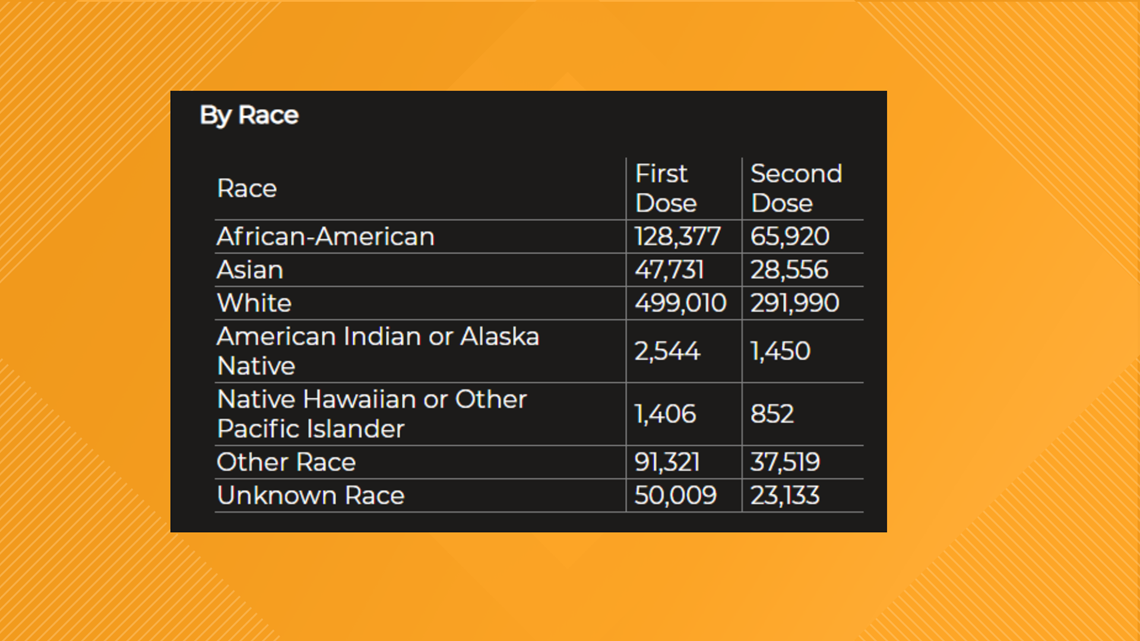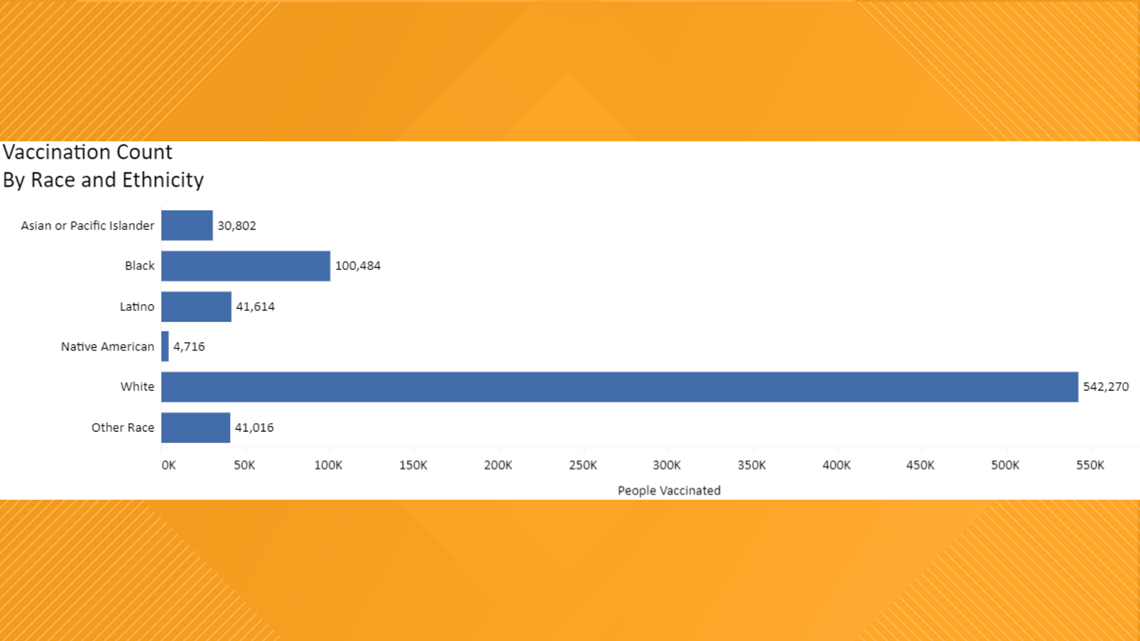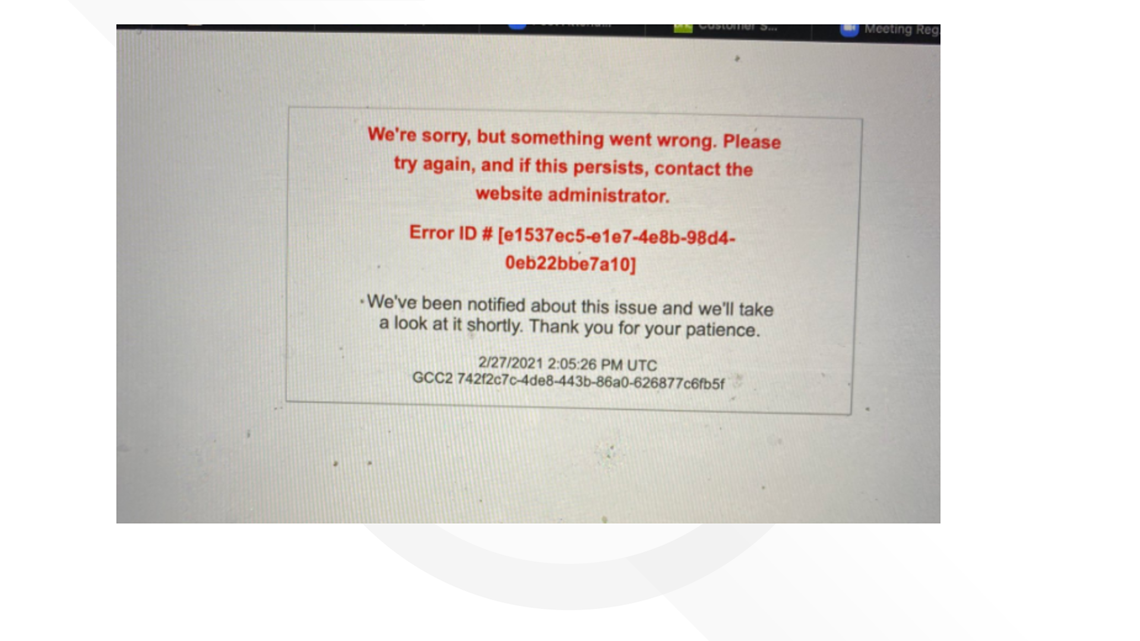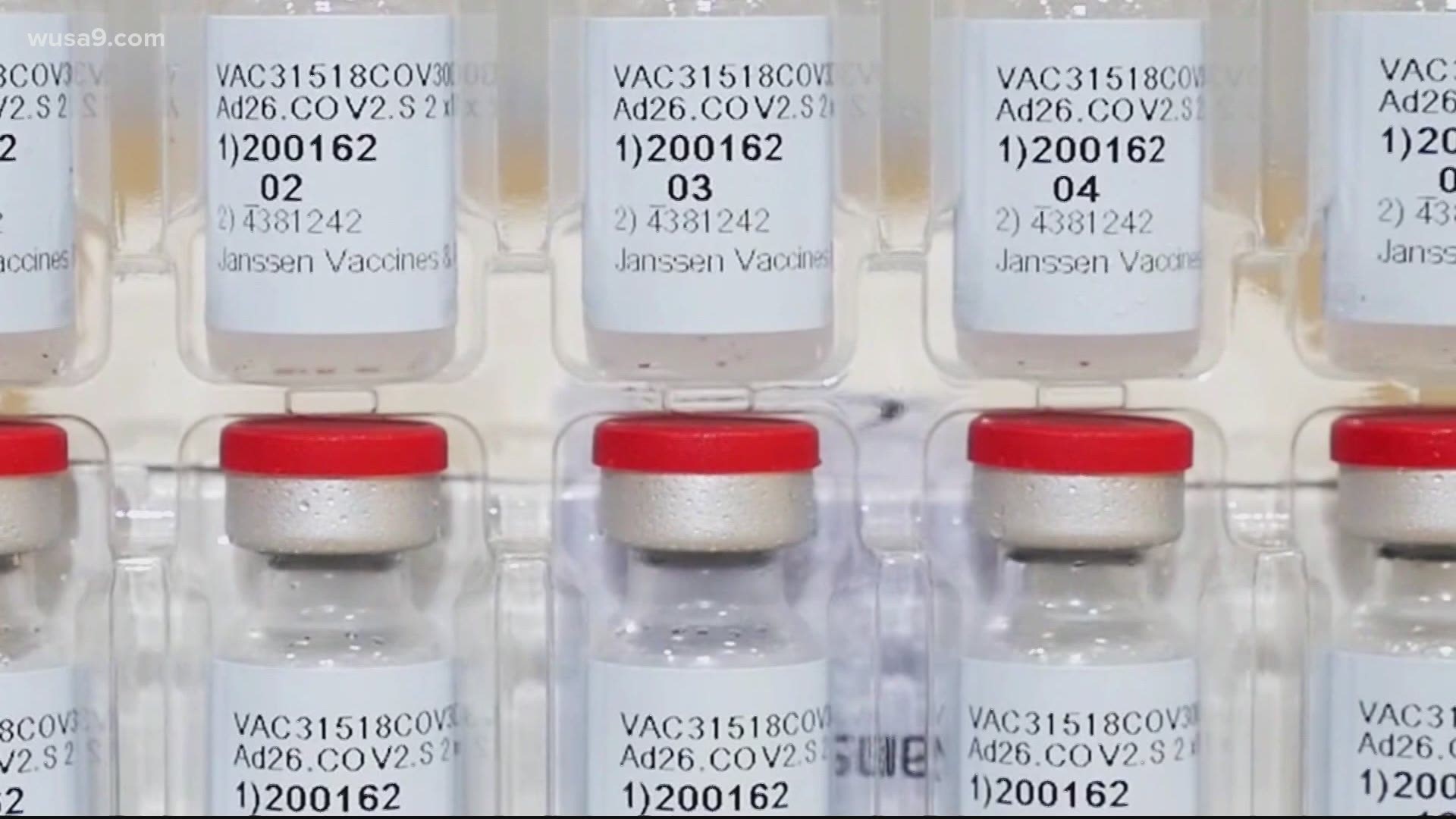WASHINGTON — It’s been a slow and at times frustrating COVID-19 vaccine rollout as some people across the DMV attempt to get inoculated.
Racial and ethnic minority groups have been at an increased risk of getting sick and dying of COVID-19, according to the CDC. However, when it comes to people getting the vaccine to combat the virus, state data for Maryland and Virginia show white people are getting the vaccine at a higher rate than anyone else.
In Maryland, Black Marylanders make up 31% of the population. But only 15% of the total Black population in the state has gotten the first vaccine dose, according to state vaccine data. White Marylanders are nearly four times more likely to be inoculated than their Black neighbors, more than any other racial group.


In Virginia, white Virginians are more than five times more likely to have the vaccine than Black Virginians. Black Virginians make up nearly 20% of the population, while white Virginians make up nearly 70%, according to census data.


In D.C., of the residents vaccinated 10,165 are Black,14,486 are white, and 20,297 are listed as other, according to D.C. data.
Only 3.1% of the District's residents are listed on the city’s website as fully vaccinated.
The city has been plagued with vaccine sign-up issues as people attempt to get a vaccine appointment that, in recent days become a coveted slot to fill.
Dr. Ashley Gray made a third attempt to get a vaccine appointment Saturday morning but was met with more technical issues that resulted in no confirmed appointment.
“This morning I was quite disappointed when the phone line that was provided for technology issues, that number was essentially disconnected this morning,” Gray said . ”It was disappointing to say the least. I have never felt like I've gambled so much with my life like this feels like a life-saving vaccine for me.”
She said if she, who has WiFi and multiple devices, is having issues she worries for those who don’t.


According to DC Health the city’s 3,500 vaccine appointments made available today filled up in 45 minutes, despite the technical issues.
“It makes me wonder if we're widening the digital divide, quite frankly,” Gray said. “I don't know who I'm competing against if I'm honest. I don't know if I'm taking a spot from a senior or somebody who's been historically disenfranchised. I don't want to do that, but what it does is it creates this system where we're all running against time, at least we think we are because we've seen so many deaths.”
Gray, who has a chronic illness, said she’s doing all she can to get the vaccine and finally feel the freedom she’s been seeking for months, yet she said she’s concerned about populations that have been disproportionately impacted by the pandemic and what can be done to increase access to the vaccine.
“I want us to be conscious that this digital divide is real. There are implications of race and class, and how people have access to this vaccine. And I just hope that we're being critical of that and aware and actually doing something to change it,” Gray said.

